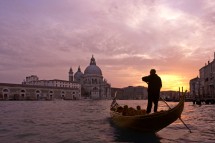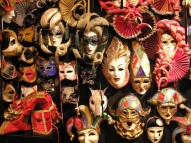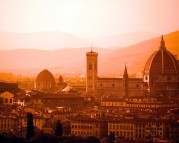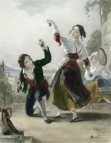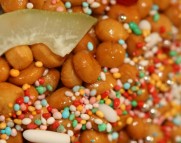Barcarolle (Notte Veneziana a Offenbach) (Columbus Day)
"Barcarolle" from "Tales Of Hoffmann," the one grand opera of Jacques Offenbach(1819-1880). Jewish/German born, Offenbach made most of his career writing light operas (operettas) in France. The "Barcarolle" (Boat Song, derived from the Italian word "barca") is sung in the opera's 3rd act and describes a watery Venetian night as the ideal setting for love.
Carnival Of Venice (Columbus Day)
Traditional melody, most popular as a virtuoso trumpet solo. The title refers to Venice's Carnevale, Italy's Mardi Gras, a colorful masked celebration leading up to Lent.
Come Back To Sorrento (Columbus Day)
(Italian) Words by G. Batista de Curtis, music by Ernesto de Curtis, 1904. As popular in America as in Italy, here presented in English. Yet another Neapolitan standard, the original words being in the Italian dialect specific to Naples.
Firenze a Puccini (Holidays/Columbus Day)
"O Mio Babbino Caro," (O My Dear Papa), a serious moment in the otherwise comic opera "Gianni Schicchi," (1918) by Giacomo Puccini(1858-1924). This aria is pleadingly sung by young Lauretta to her unscrupulous Florentine father, insisting she will throw herself off the Ponte Vecchio into the Arno if he doesn't allow her to be with the man she loves.
Funiculi, Funicula! (Columbus Day)
Lyrics by Peppino Turco, music by Luigi Denza, written in 1880 to celebrate the first funicular car up Mt. Vesuvius. The infectious music invites one to dance, specifically a tarantella.

